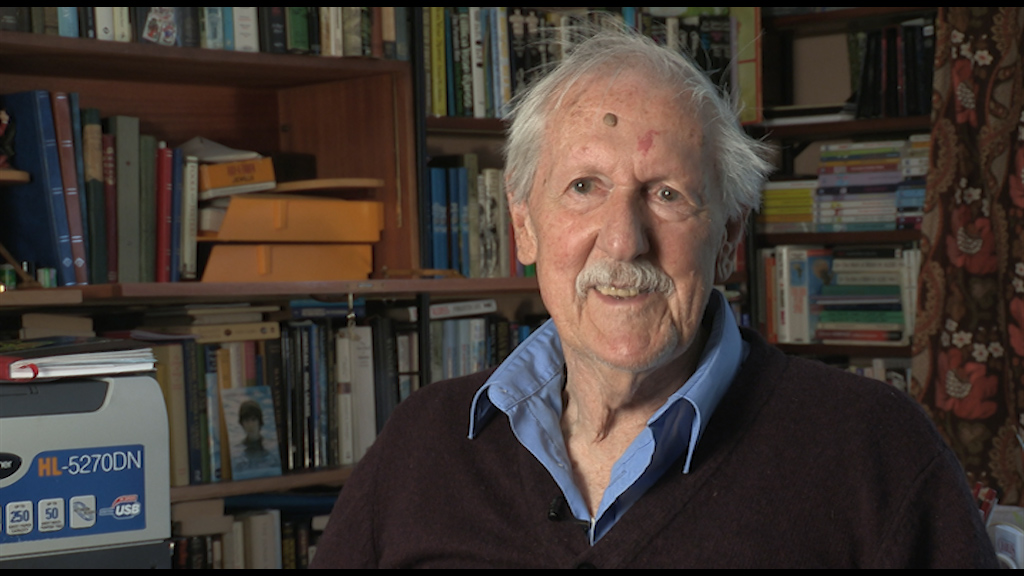NEXT STORY

Lord Byron’s legacy to Montenegro
RELATED STORIES

NEXT STORY

Lord Byron’s legacy to Montenegro
RELATED STORIES


|
Views | Duration | |
|---|---|---|---|
| 61. Hidden treasures of Serbia | 53 | 02:44 | |
| 62. Lord Byron’s legacy to Montenegro | 51 | 02:09 | |
| 63. Nocturnal yodelling on the island of Mljet | 29 | 02:15 | |
| 64. The Englishman’s aversion to science fiction | 53 | 04:12 | |
| 65. Without science fiction there’d be no Bovril | 70 | 03:25 | |
| 66. More on Billion Year Spree | 48 | 04:33 | |
| 67. Stanley Kubrick’s house | 313 | 03:46 | |
| 68. Working with a genius | 218 | 02:43 | |
| 69. Stanley Kubrick sets the bar high | 154 | 03:56 | |
| 70. Steven Spielberg steps into the breach | 116 | 02:58 |


We gradually went through all the various states of Yugoslavia and saw wonderful things. I mean, up in the hills of Serbia, through a forest which is described in a book that I've always held dear called Eothen by a man called Kinglake. Kinglake knew… he at least knew Belgrade. I took that book with me, it was one of the permanent books in my life – I've still got it although it's some time since I've read it. But there, up in the mountains, an earlier generation of Serbs had built little chapels, hidden away so that the invading Muslim might not find them.
And when you entered one of those little churches, it was full of pictures, pictures from the Bible – every pillar would have a picture illustrating something or other. Why? Because the population, of course, was a peasantry and they were illiterate, but when they went into one of these churches, all could be told to them. And I've never understood why it was that these places are not a famous pilgrim site. I wrote a book about them, a little book which was published locally, about the Serbian churches. It made, of course, not a bean of difference.
But there we were, travelling around and becoming more and more gypsy-like as time went by so that up in the mountains, we would drink from one of the streams, lie down and drink from the stream. We would sleep outside the Land Rover on the ground and became a kind of native. It was a wonderful experience and all the way, of course, I was making notes for the book which Faber had promised they would publish. And so the year went by... 1964.
Brian Aldiss (1925-2017) was an English writer and anthologies editor, best known for his science fiction novels and short stories. He was educated at Framlingham College, Suffolk, and West Buckland School, Devon, and served in the Royal Signals between 1943-1947. After leaving the army, Aldiss worked as a bookseller in Oxford, an experience which provided the setting for his first book, 'The Brightfount Diaries' (1955). His first science fiction novel, 'Non-Stop', was published in 1958 while he was working as literary editor of the 'Oxford Mail'. His many prize-winning science fiction titles include 'Hothouse' (1962), which won the Hugo Award, 'The Saliva Tree' (1966), which was awarded the Nebula, and 'Helliconia Spring' (1982), which won both the British Science Fiction Association Award and the John W Campbell Memorial Award. Several of his books have been adapted for the cinema. His story, 'Supertoys Last All Summer Long', was adapted and released as the film 'AI' in 2001. His book 'Jocasta' (2005), is a reworking of Sophocles' classic Theban plays, 'Oedipus Rex' and 'Antigone'.
Title: Hidden treasures of Serbia
Listeners: Christopher Sykes
Christopher Sykes is an independent documentary producer who has made a number of films about science and scientists for BBC TV, Channel Four, and PBS.
Tags: Serbia, Eothen, Alexander William Kinglake
Duration: 2 minutes, 44 seconds
Date story recorded: September 2014
Date story went live: 17 August 2015